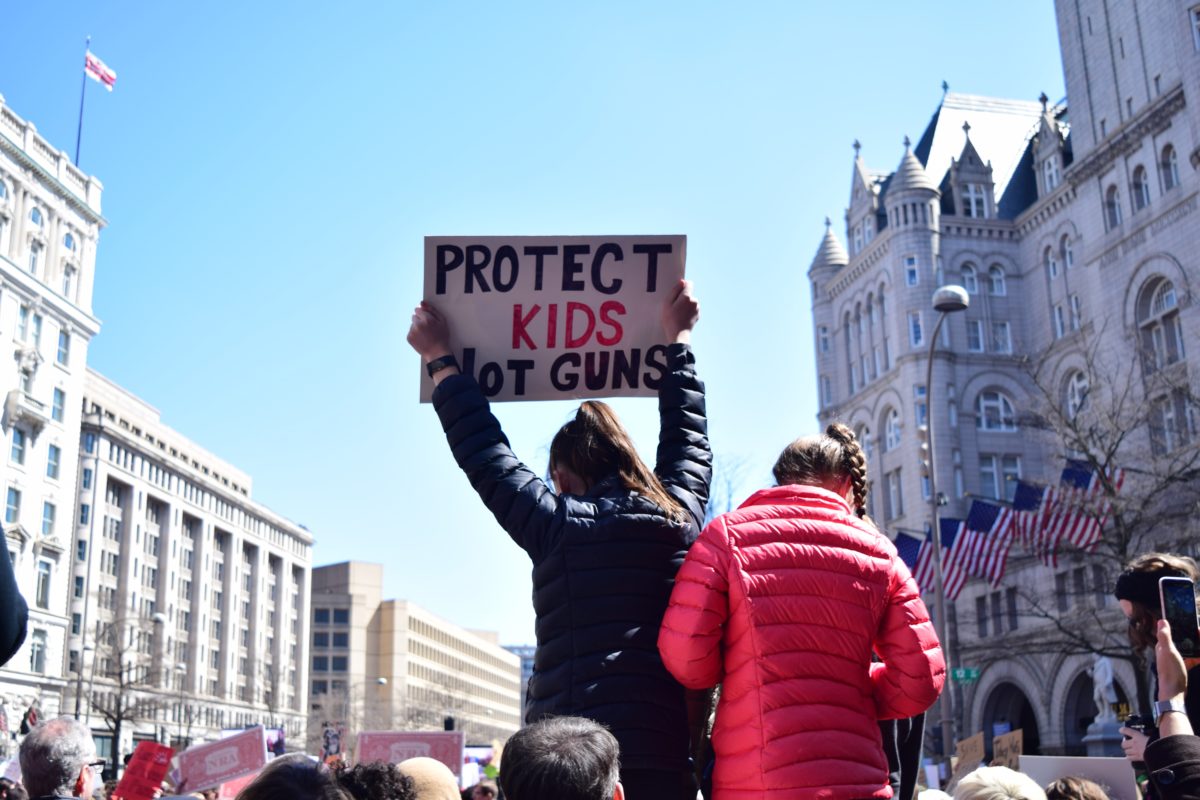*Trigger warning *: This post references the current gun violence epidemic in the United States.
Dayton. El Paso. Gilroy. Parkland. It seems like every time I read a headline, a different city is reeling from another mass shooting. With reports that there have been more mass shootings than days so far in 2019, and with everyday activities like shopping at a grocery store, worshipping, and experiencing nightlife now tinged with fear, it’s easy to feel scared, helpless, angry, and confused.
Poetry offers us an opportunity not only to sit with and reflect on these feelings but to eventually find productive emotions, as well. Moreover, the passion of poetry can hopefully inspire bold, necessary action.
So, after reading through this list, pair words with activism—contact your elected officials, give time or money to organizations like Moms Demand Action and Everytown for Gun Safety, and educate yourself on what politicians receive money from the National Rifle Association.
“America is a Gun” by Brian Bilston
Bilston’s poem, written in 2016, has experienced a recent resurgence with the singer Pink posting it on Twitter to comment on recent mass shootings and to criticize U.S. inaction. The poem, written in rhyming, four-line stanzas, takes on the rhythm of a lilting nursery rhyme, juxtaposing this tone with the dark subject matter of both violence and national identity. It opens with “England is a cup of tea. / France, a wheel of ripened brie. / Greece, a short, squat olive tree. America is a gun.”
The harsh language of “America is a gun” disrupts the rhyme scheme and puts America in distinct contrast with the other countries in the poem. This reflects real life—the U.S. has the highest mass shooting rate of developed countries, even inspiring a travel warning from other countries. Bilston compels Americans to think about what we want our country’s reputation to be.
“Self-Portrait as Milk Hare in Active Shooter Alert” by Traci Brimhall
In this poem, published by Crazyhorse, Brimhall, who teaches at Kansas State University, writes from the perspective of an active shooter drill, a practice that has traumatized a generation of students. The poem pushes back against the argument that teachers should be armed guards or martyrs, with the speaker bluntly stating, “I will not die for these students. Or kill for them.”
The poem also shows what gun violence victims have to lose. The crux of the work lies in the speaker’s experience of motherhood, and her deep need to stay alive for her son. Brimhall writes, “I don’t want to give my son a hero for a mother. I want to go home to him. I want him to lose me after years of hugs, arguments, and medically accepted suffering.” Brimhall’s words reflect the experience of two victims in El Paso who died shielding their baby and place the personal lives torn apart through violence in sharp focus.
“What to Do With My Body in the Event I Die in a Mass Shooting” by Tom McAllister
In this poem, McAllister does an important service that’s now being pushed forward in the media —shifting attention from perpetrators to victims, often called the “no notoriety” approach. Instead of the imagery of an angry or rampant shooter, McAllister turns eyes to his potential self, writing, “Don’t do anything to hide the reality of my death. Let people see me exactly how I was in my last moments . . . I want them to see my mouth agape, my eyes feeling betrayed but also weary, because in those final moments, I know I would be shocked but not surprised (you can’t be surprised by something that happens every day; nobody is surprised to see the sun rise in the morning).”
Recently, a similar national campaign has emerged. Some students are attaching a sticker to their drivers’ licenses or phones that reads, “In the event that I die from gun violence, please publicize the photo of my death. #MyLastShot. Signed, _____.” The point of the sticker, these teens say, is to fight back against the common argument that gun violence tragedies shouldn’t be politicized.
“I Could Ask, But I Think They Use Tweezers” by Aziza Barnes
Barnes wrote this poem that describes the medical reality of removing a bullet and what gun violence does to a body, about the murder of her best friends when the two were teenagers. The poem takes on gun violence’s racial connotations and statistics, with Barnes noting, “We have to interrogate why black bodies are viewed as disposable bodies and the behavior that comes along with that,” in a related interview.
Barnes writes, “the brain is a big town the heart is a big town the kidneys are hot spots like Vegas built to handle armies on vacation the blood learns to bend another way like the legs of a crane.” Barnes’ flood of language and reliance on the body in the poem seems to criticize how we become desensitized to gun violence, yet she also urges readers to not look away.
For other important poems on gun violence, check out the book Bullets Into Bells: Poets & Citizens Respond to Gun Violence. The anthology brings together poems on the topic by well-known voices like Billy Collins, Danez Smith, and Ocean Vuong, pairing these poetic works with responses from gun violence survivors and advocates.




